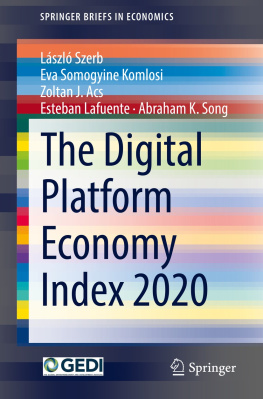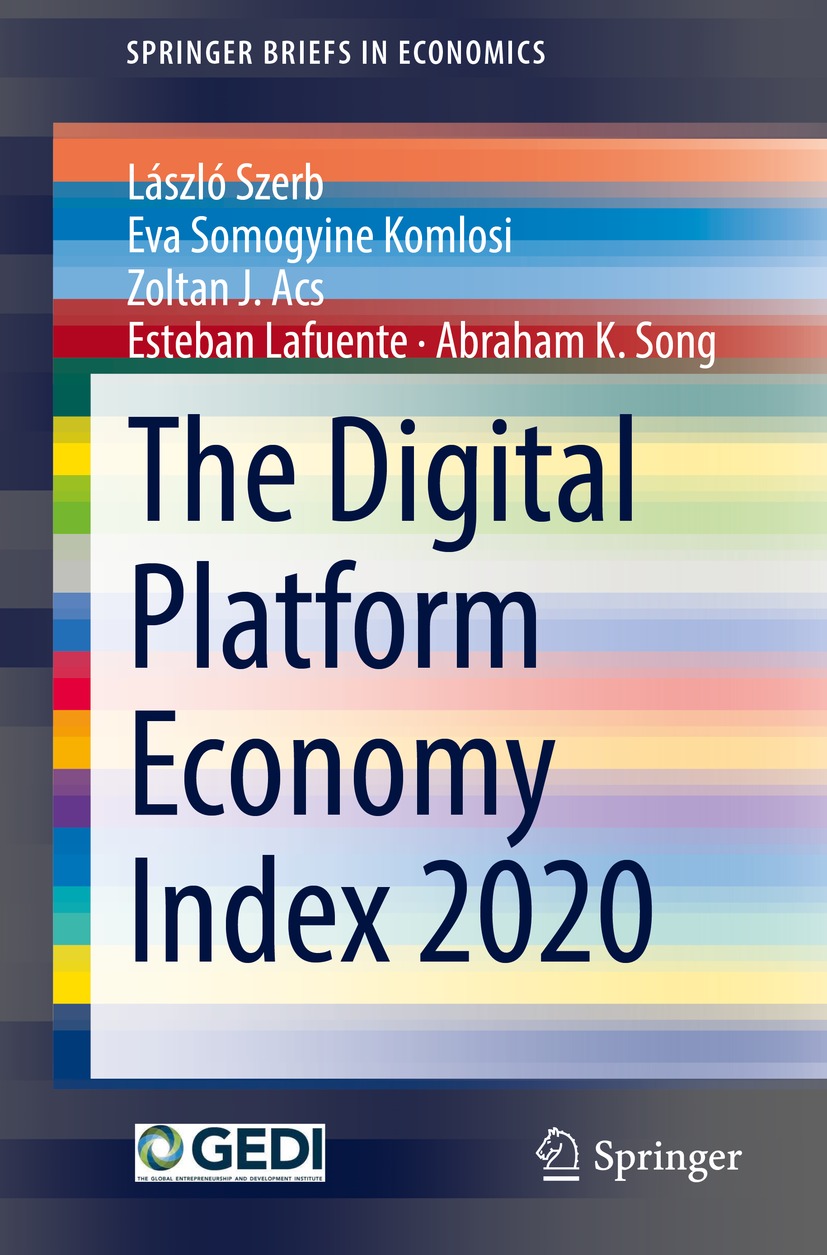SpringerBriefs in Economics
SpringerBriefs present concise summaries of cutting-edge research and practical applications across a wide spectrum of fields. Featuring compact volumes of 50 to 125 pages, the series covers a range of content from professional to academic. Typical topics might include:
A timely report of state-of-the art analytical techniques
A bridge between new research results, as published in journal articles, and a contextual literature review
A snapshot of a hot or emerging topic
An in-depth case study or clinical example
A presentation of core concepts that students must understand in order to make independent contributions
SpringerBriefs in Economics showcase emerging theory, empirical research, and practical application in microeconomics, macroeconomics, economic policy, public finance, econometrics, regional science, and related fields, from a global author community.
Briefs are characterized by fast, global electronic dissemination, standard publishing contracts, standardized manuscript preparation and formatting guidelines, and expedited production schedules.
More information about this series at http://www.springer.com/series/8876
Lszl Szerb , Eva Somogyine Komlosi , Zoltan J. Acs , Esteban Lafuente and Abraham K. Song
The Digital Platform Economy Index 2020

Logo of the publisher

Logo of the publisher
Lszl Szerb
Faculty of Business and Economics, University of Pcs, Pcs, Hungary
Eva Somogyine Komlosi
Faculty of Business & Economics, University of Pecs, Hosszhetny, Baranya, Hungary
Zoltan J. Acs
Schar School of Policy and Government, George Mason University, Arlington, VA, USA
Esteban Lafuente
Department of Management, Universitat Politcnica de Catalunya, Barcelona, Spain
Abraham K. Song
Assistant Professor of Public Policy, Pepperdine University, Graduate School of Education and Psychology, Los Angeles, CA, USA
ISSN 2191-5504 e-ISSN 2191-5512
SpringerBriefs in Economics
ISBN 978-3-030-89650-8 e-ISBN 978-3-030-89651-5
https://doi.org/10.1007/978-3-030-89651-5
The Author(s), under exclusive license to Springer Nature Switzerland AG 2022
This work is subject to copyright. All rights are solely and exclusively licensed by the Publisher, whether the whole or part of the material is concerned, specifically the rights of translation, reprinting, reuse of illustrations, recitation, broadcasting, reproduction on microfilms or in any other physical way, and transmission or information storage and retrieval, electronic adaptation, computer software, or by similar or dissimilar methodology now known or hereafter developed.
The use of general descriptive names, registered names, trademarks, service marks, etc. in this publication does not imply, even in the absence of a specific statement, that such names are exempt from the relevant protective laws and regulations and therefore free for general use.
The publisher, the authors and the editors are safe to assume that the advice and information in this book are believed to be true and accurate at the date of publication. Neither the publisher nor the authors or the editors give a warranty, expressed or implied, with respect to the material contained herein or for any errors or omissions that may have been made. The publisher remains neutral with regard to jurisdictional claims in published maps and institutional affiliations.
This Springer imprint is published by the registered company Springer Nature Switzerland AG
The registered company address is: Gewerbestrasse 11, 6330 Cham, Switzerland
Preface
In April 2020, the GEDI launched a preliminary report about measuring the digital entrepreneurship ecosystem. Over time, the concept has gone through several iterations and is now ready to be published. Like the Global Entrepreneurship Index products, we are planning to continue this research and publish yearly reports.
The application of big data, new algorithms, and cloud computing is creating a global digital platform economy built around platform companies. The Digital Platform Economy Index (DPE Index) integrates two separate but related literatures on ecosystems, namely, the digital ecosystem and the entrepreneurial ecosystem. This new framework situates digital entrepreneurship within the broader context of users, platforms, and institutions, such that two biotic entities (users and agents) actuate individual agency, and two abiotic components (digital infrastructure and digital platforms) form the external environment. If a country builds out its digital ecosystem, there is no guarantee that it will be exploited by existing firms. Startups adoption of new technologies because of an entrepreneurial ecosystem is also uncertain. For technology to be introduced successfully, the digital ecosystem and the entrepreneurial ecosystem must be developed simultaneously.
To measure the size of the digital platform economy, we have developed the DPE Index, a multidimensional, composite indicator. The DPE Index framework includes 12 pillars that integrate the digital and the entrepreneurship ecosystems. Here, we report on the DPE Index, the four sub-indices, and the 12 pillar values for 116 countries; we also provide a cluster analysis based on the 12 pillars. The developed Anglo-Saxon and Nordic countries lead the DPE Index ranking, followed by other European and Asian nations, New Zealand, and Australia. Many mid-developed European, Asian, and Latin American countries and a group of oil-rich countries (i.e., Bahrain, Oman, Qatar, Saudi Arabia, and United Arab Emirates) report below-average DPE Index scores, while developing economies in Africa, Asia, Europe, and Latin America are in the group of poorly performing countries. The DPE Index results reveal that most European Union (EU) member states (22 out of 27) are on or above the trend line; however, except for The Netherlands, they are far below the two top DPE performers (the USA and the UK).
While it is useful to identify the common components of the digital platform economy ecosystem, policy recommendations should be individual and tailor-made. This report offers policy recommendations on three levels and are based on the harmonization of digital and entrepreneurship ecosystem components, and the 12 pillars. First, we identify the countries that are below the development-implied trend line, and which should spend more on improving their digital platform economy ecosystem. Next, we examine the balance of the digital and the entrepreneurship ecosystems. Imbalances could result in asynchronous operation, thus a healthy digital platform economy requires both digital and entrepreneurial ecosystem components. Finding the weak components of the digital platform economy ecosystem constitutes the third-level policy propositions. Weak components, called bottlenecks, could prevent a country from fully exploiting the possibilities provided by the stronger elements of the ecosystem. We center our focus on the European countries, including showing that the EU has paid a price for BREXIT. The UK is a dominant player in the digital platform economy arena, and it will be difficult to find a substitute.














